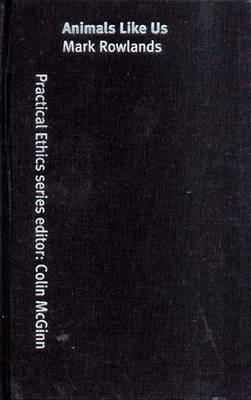Practical Ethics
1 total work
Foot-and-mouth and mad-cow disease are but two of the results of treating animals as commodities, subject only to commercial constraints and ignoring all natural and moral considerations. Chickens hanging by their necks on conveyor belts, caged pigs with sores, bloated dead sheep with their legs in the air, mutilated dogs waiting to die after undergoing horrendous experiments in the name of science or just product-testing-these are some of the images that illustrate the indifference of a consumerist society to the suffering of animals. Few are willing to recognize that the packaged, sanitized supermarket meat that materializes on their dinner tables every day is the result of an industrial process involving unimaginable pain and suffering. We would be horrified if our pets were harmed, yet every day we eat animals that have been tortured and executed.
Mark Rowlands claims that it is simply unjust to harm animals. As conscious, sentient beings, biologically continuous with humans, they have interests that cannot simply be disregarded. Using simple principles of justice, he argues that animals have moral rights, and examines the consequences of this claim in the contexts of vegetarianism, animal experimentation, zoos and hunting, and animal rights activism.
Mark Rowlands claims that it is simply unjust to harm animals. As conscious, sentient beings, biologically continuous with humans, they have interests that cannot simply be disregarded. Using simple principles of justice, he argues that animals have moral rights, and examines the consequences of this claim in the contexts of vegetarianism, animal experimentation, zoos and hunting, and animal rights activism.
